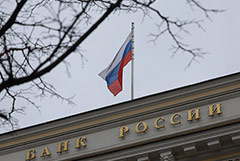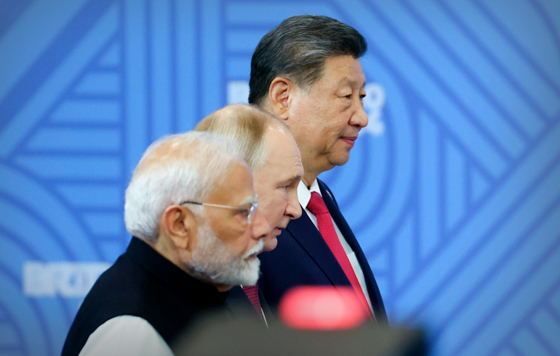Food tech on its way to reshaping a multi trillion market

- Bain & ZINTINUS: "The food sector is at a tipping point, about to grow exponentially"
- Transforming the global food sector to a more sustainable industry is important to improve consumer health and reduce the sector’s carbon footprint – it is also a means to secure food supply
- The transition of the food system opens enormous opportunity for value creation and thus also for entrepreneurs and investors
Berlin & New York, June 21, 2022 – The transformation of the world’s food market towards a more sustainable model is now at a tipping point, within an annual global food market of US $ 8 trillion.
Food sector transformation relies on innovation to deliver healthier diets, environmental-friendly production, and more sustainable food practices. A transformation of this size offers an opportunity of historic proportions, concludes a white paper co-authored by two seasoned food experts from Bain & Company and ZINTINUS, a food tech investment fund.
"Transforming the global food sector into a more sustainable industry is one of the most urgent tasks of our time that will bring vast benefits to consumers, society and our planet. Consumer demand is driving the change, offering a vast market opportunity to entrepreneurs and investors," says Olaf Koch, Co-author of the report and CEO of ZINTINUS, a food tech investment fund. "Fortunately, establishing a more sustainable and healthier system is absolutely possible with the right platforms to foster food tech innovation and deliver sustainable products to consumers," continues Olaf.
The white paper, titled Food Tech - Turning Promise Into Opportunity" analyses the sector, concluding that opportunities for innovation range from new ingredients, products and distribution strategies to completely new food service concepts. Marc-Andre Kamel, Partner and Head of Global Retail Practice at Bain & Company, says: "The good news is that transformation on the required scale is absolutely possible. The prerequisites for a more sustainable, healthier and secure supply system are now in place. Recent advances in research and technology have been breath-taking, boosting confidence that positive change is feasible. We have to create the conditions for this, and this includes cooperation between as many parts of society, business and politics as possible."
The report acknowledges that we have seen initial investment of $ 18.9bn in US food innovations last year. But, with food demand predicted to increase by more than 50% by 2050, to transform at the required scale to make the food sector truly sustainable, it will require annual investment of US $ 150bn.
The report identifies several trends that will help food sector transformation, including, amongst others:
- Consumers want healthier and more sustainable products, a trend boosted by the pandemic. 40% of Millennials and Gen Z state that they are eating healthier food since the start of the pandemic and roughly 75% state that they spend more to buy sustainable food products.
- Plant-based food alternatives are becoming a mainstream phenomenon. Demand has increased steadily, outpacing the growth of incumbent brands by 4-5 times.
- The alternative protein market is projected to reach a volume of US $68,5bn by 2025, with expected compound annual growth rates above 10%.
- Better food waste analytics that cut hospitality industry waste and emerging "food rescue" solutions are contributing to a reduction in global food loss (around 33% today).
- Adaptations to manufacturing and distribution processes will improve the supply of food on a global scale while creating a more sustainable and healthier food system.
The opportunity to create substantial value for society and economy is significant. Dedicated programs are arising to leverage this opportunity in various parts of the world with Singapore and Israel at the forefront.
Both authors state that Europe is in a fantastic position to further expand its role as a positive driver of food sector transformation. Europe has a history of an incredibly diverse food culture that is thousands of years old. Europe has become the largest exporter of food products and has publicly committed to making the food sector more sustainable, via the European Commission’s "European Green Deal".
The White Paper "Food Tech – Turning Promise Into Opportunity" can be downloaded from: https://zintinus.com/report/
Bio Olaf Koch: https://zintinus.com/olaf-koch/
Bio Marc-Andre Kamel: https://www.bain.com/our-team/marc-andre-kamel/
Media Contact for ZINTINUS:
James Hartwell
Kekst CNC
Phone: +44 7870 487 532
Email: james.hartwell@kekstcnc.com
Media Contact for Bain & Company:
Gary Duncan
Phone: +44 7788 163791
Email: gary.duncan@bain.com
About ZINTINUS:
ZINTINUS is a food tech growth capital fund with a focus on alternative proteins, functional food, clean nutrition and food waste reduction with offices in Berlin, Germany and Boulder, USA. ZINTINUS aims to contribute its unique combination of knowledge, experience and network to the positive transition of the food systems creating the basis for superior value generation along the whole chain to the benefit of consumers, the environment and investors.
About Bain & Company:
Bain & Company is a global consultancy that helps the world’s most ambitious change makers define the future.
Across 65 cities in 40 countries, we work alongside our clients as one team with a shared ambition to achieve extraordinary results, outperform the competition, and redefine industries. We complement our tailored, integrated expertise with a vibrant ecosystem of digital innovators to deliver better, faster, and more enduring outcomes. Our 10-year commitment to invest more than $1 billion in pro bono services brings our talent, expertise, and insight to organizations tackling today’s urgent challenges in education, racial equity, social justice, economic development, and the environment. We earned a gold rating from EcoVadis, the leading platform for environmental, social, and ethical performance ratings for global supply chains, putting us in the top 2% of all companies. Since our founding in 1973, we have measured our success by the success of our clients, and we proudly maintain the highest level of client advocacy in the industry.
Интерфакс не несет ответственности за содержание материала.


















